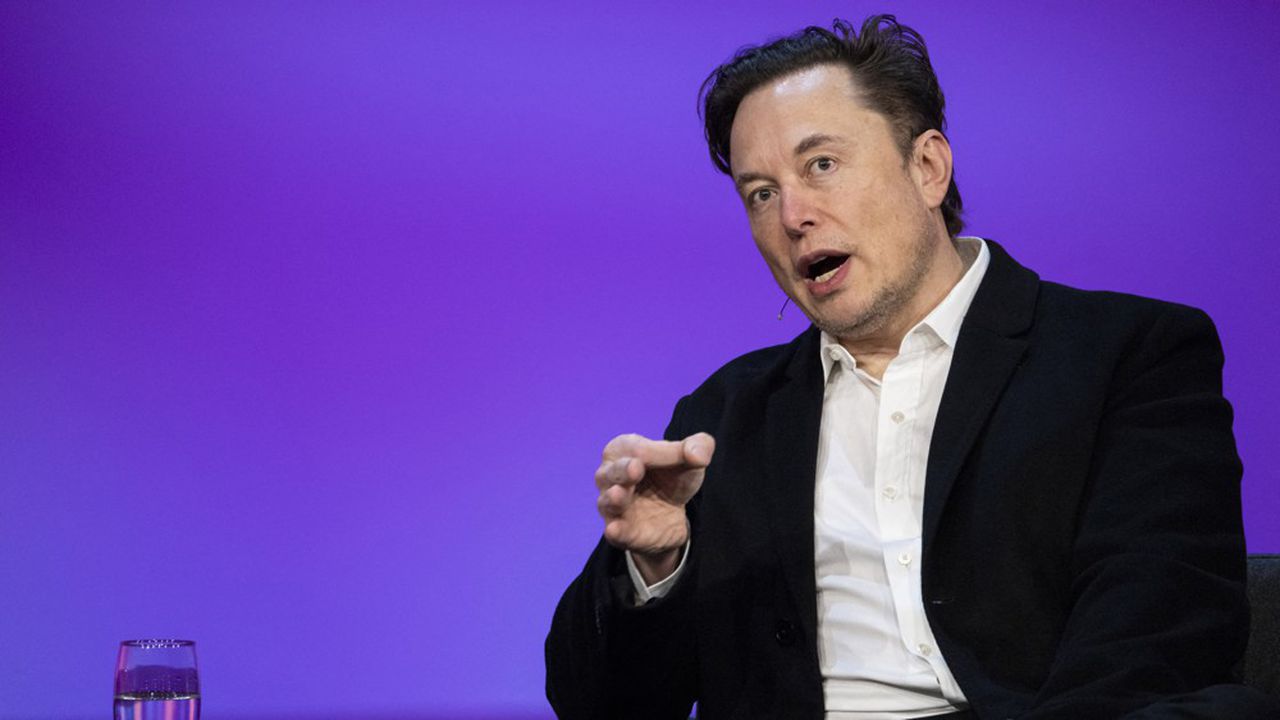When it’s vague, it means there’s a wolf. This is probably what the employees of Twitter thought when Elon Musk spoke for the first time on Thursday during a video conference. The boss of Tesla and Space-X remained vague on key issues in the eyes of employees worried that he does not respect certain values of the company. All this, without affirming with certainty that he would complete the takeover of the platform.
During this meeting, relayed in particular by the “New York Times” and the Bloomberg agency via anonymous sources, Elon Musk shared his passion for the social network, his favorite means of expression. But he also said he was not happy with the company’s financial results. “Right now, costs are outpacing revenue. It’s not a great situation,” he said, according to the two news outlets.
Citing the success of Chinese apps TikTok and WeChat as examples, Elon Musk set an ambitious goal of reaching 1 billion users when Twitter currently has only 229 million active users who are so-called “monetizable,” meaning they can be exposed to advertising on the platform.
Call for less moderation
Beyond business, the employees have mainly questioned him about his political vision and his intentions in terms of corporate culture and working conditions. On these issues, there were no clear answers. As he did last April the businessman followed by more than 98 million users on the social network, has again stressed the importance in his eyes of a less strict moderation of content, within the limits defined by the law.
This view clashes with that of many Twitter employees, associations and Democratic elected officials, who instead call on social networks to do a better job of fighting hate speech, harassment and misinformation.
Disagreement on telecommuting
Elon Musk has also remained vague on the sensitive issue of telecommuting. The Tesla boss’ position on this subject is well known: he recently demanded that his employees they must work at least 40 hours per week in person Otherwise, they would lose their jobs.
While acknowledging that Twitter employees were doing a different job than those who design and assemble cars, Elon Musk on Thursday reaffirmed his preference for face-to-face. “The bias certainly has to be strongly in favor of in-person work, but if someone is doing exceptional work, remote work can be OK,” Elon Musk said, according to people who attended the meeting. This is in contrast to the current Twitter leadership, which has pledged to allow all of its 7,500 employees to work entirely remotely…
Finally, more worrying for Twitter employees, Elon Musk did not specify if he was planning to reduce the workforce. He simply mentioned taking into account the group’s performance, without further details. “Anyone who is a major contributor should not have to worry,” he added, while reaffirming that he intended to influence the strategic directions and product improvements of the platform.
Markets not convinced
All these elements highlight “the contrast between Musk’s culture and Twitter’s DNA,” points out Wedbush analyst Dan Ives. On Wall Street, investors don’t seem convinced of the compatibility between the whimsical billionaire and Twitter either. At $37, the social network’s stock price is still 30% below price proposed, mid-April, by Elon Musk .
The latter has secured the support of several large fortunes and investment companies to achieve the 44 billion dollars that this takeover should cost. But he is still keeping his plans vague and threatens to withdraw its offer because of the number of fake accounts on the network, too important in his eyes.
SpaceX employees can’t stand their boss
It’s not just Twitter employees that Elon Musk is annoying. The richest man in the world has also alienated his employees at SpaceX, his space exploration company. Several of them blame him for his behavior in the public sphere, “a source of distraction and shame”. They call on the company to “publicly condemn” his way of tweeting, in a letter that will soon be delivered to the president of SpaceX, according to the specialized site The Verge.


